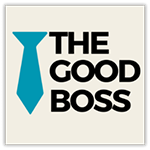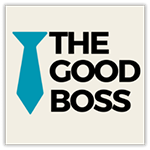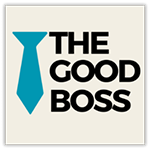When we picture a leader, we often imagine someone bold and charismatic. We see them commanding rooms, making speeches, and leading from the front.
But some of the most effective leaders I have worked with weren’t loud at all. They stayed away from the spotlight (and should I say, the drama?)
So how do they lead?
They lead through quiet consistency, sharp thinking, and small daily habits that compound over time.
In this post, we’ll explore 9 of those often invisible yet powerful habits, and how they make them effective leaders.
Which ones will you adopt?
Habit #1. They pause before reacting
I remember a time when someone on my team missed a crucial deadline, and my first instinct was to call him out. It was hard not to, given the volcano of emotions boiling inside me.
When a deadline is missed or a meeting goes sideways, most people react fast. Often too fast.
Quietly effective leaders pause.
They’ve trained themselves to slow down when it matters most, especially under pressure. That pause is powerful. It creates space for better decisions and clearer thinking.
Try this:
Count to five before replying to emails or comments that trigger you.
In meetings, pause before responding, especially when challenged.
Use this model to guide you: System 1 and 2 Thinking
Habit #2. They listen more than they talk
Have you ever had a 1:1 where you left feeling like you barely spoke? Yeah, I’ve been there too.
Here’s the irony: the quietest people in the room often know the most, while the loudest know the least. Why? Because they listen.
Effective leaders hold space for others to speak. And they do it intentionally, because they’re so eager to listen to what others have to say. And guess what happens when they do that? When people feel heard, they contribute better ideas, which helps their goals move forward.
Try this:
Speak less than 50% in your next 1:1. (Okay, if you’re the talkative type, try 75%)
Replace advice with questions: “What do you think we should do?”
Invite constructive feedback with: “Is there something I’m missing here?”
Habit #3. They prepare more than they need to
There was a time I walked into a leadership meeting with barely any prep, thinking I could “wing it.” Big mistake. I fumbled through answers, missed key data points, and walked out kicking myself.
Quiet leaders often have a reputation: they’re the most prepared person in the room.
They don’t rely on charisma or volume to carry them through. They rely on preparation. That prep shows in how they structure meetings, anticipate questions, and make decisions.
Try this:
For every key meeting, prepare 3 questions you're likely to be asked.
Use the “why → how → what” structure (ref The Golden Circle) to clarify your message.
Block 15 minutes of prep time before important 1:1s or presentations.
Enjoying the read? I’ll appreciate it if you would take 2 seconds and hit the ❤️ button and share/restack 🔁 it with others who might find it helpful. You can also subscribe to The Good Boss for more posts like this every week. Thank you! 🙏
Habit #4. They follow through, always
Some leaders impress with their ideas. Others impress with their follow-through.
Quietly effective leaders are in the second camp. If they say they’ll do something, they do it. That simple act builds deep trust with their teams, peers, and leadership.
They don’t chase everything. They commit selectively, but they follow through fully.
I’ve seen leaders with big ideas lose credibility because they never followed through. And I’ve seen quiet, dependable folks become linchpins, simply because they delivered.
Try this:
Review your open commitments weekly.
Commit to doing what you say, and saying what you do.
Prioritize using the Impact-Effort Matrix.
Habit #5. They deflect praise and absorb blame
In one of my earlier roles, a leader took the heat for a failed project even though it was clearly our team’s oversight. I was stunned, and my respect for her skyrocketed.
When a project succeeds, quietly effective leaders spotlight the team. When something breaks, they take ownership.
This isn’t about sacrificing or being seen as a martyr. It’s about modeling ownership. And guess what: it builds loyalty, and earns respect.
Try this:
In public settings, name the people who made it happen.
In customer escalations, begin with “I own this.”
Shift subtle blame to shared ownership: “they should have…” → “we missed…”
Habit #6. They regulate their emotions
I once had back-to-back customer escalations, budget cuts, and a surprise resignation. All in the same week.
Pressure in leadership is inevitable. How you show up under pressure is what differentiates a good leader from a great leader.
Quiet leaders know how to regulate their emotions. They may feel stressed or frustrated, but they don’t let that rub off on their teams. They are emotionally self-aware and self-regulated.
Try this:
Check your emotions and learn how to escape the Insecurity Loop.
Debrief emotionally intense moments after the fact, not in the heat of the moment.
Practice mindfulness to regulate your emotions, and become more self-aware.
Feedback is a gift! 💬 If you’re finding this post helpful, would you do me a favor and leave a quick testimonial here, and as a thank-you, I’ll send you a free copy of my book! It only takes a couple of minutes - thank you! 🙏
Habit #7. They build real relationships
For quiet leaders, building relationships is not about going to a bar and mingling with your team over drinks.
It’s more subtle.
Quiet leaders remember birthdays. They check in when someone’s having a tough week. They make people feel seen.
These small gestures slowly build goodwill and relationships that last longer and stronger.
Try this:
In every 1-on-1 conversation, ask your team member how their day and week is going. Don’t jump to project updates.
Send a thank-you email when someone helps you, however small, and CC their manager.
Never miss wishing your team members on their special days.
Habit #8. They treat their calendar like a strategic weapon
Quiet leaders are intentional with their time.
They don’t “fill” their calendar. They design it, intentionally blocking time for thinking, prep, and recovery.
Everyone has a full calendar, but what differentiates the effective leaders is this: their calendar reflects their true priorities.
Try this:
Audit your calendar. Identify the important vs the fluff.
Block two 90-minute sessions each week for proactive thinking and strategizing.
Use Mind-boxing to organize and schedule your priorities.
Habit #9. They reflect constantly
Quiet leaders make time to reflect. After every project, every customer escalation, every success or failure… they ask these three questions:
What worked?
What didn’t?
What will I do differently?
They learn from their mistakes and failures. And they continue to improvize.
Try this:
Set a 30-minute calendar block every Friday for a “weekly retro.”
Ask yourself: What’s one thing I learned this week?
Incorporate retrospective meetings in your team’s project schedules. Normalize reflection and improvement.
❤️ Enjoying the read? Subscribe to The Good Boss to get articles like this every week.
Final thoughts
You don’t have to be loud to be respected.
You don’t need charisma to drive change.
You don’t need to dominate the room to lead it.
What you do need is intention and discipline.
So, which habit are you going to pick today? Let me know in the comments!
If you found this post helpful, subscribe to The Good Boss and join 6,000+ other smart leaders for weekly leadership insights.
PS: If you’re enjoying The Good Boss, I will appreciate it if you would take 2 seconds and hit the ❤️ button and share/restack 🔁 it with others who might find it helpful. Thank you!
Also, I’d love your feedback! 💬 Leave a quick testimonial here, and as a thank-you, I’ll send you a free copy of my book! It only takes a couple of minutes - thank you! 🙏






